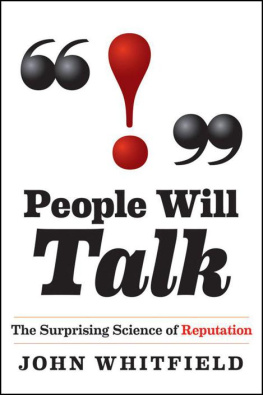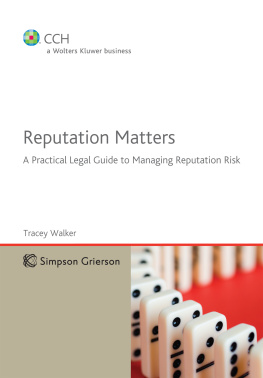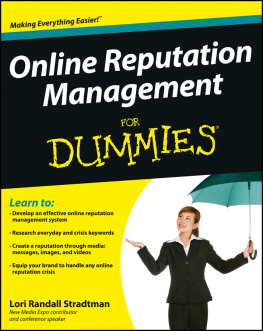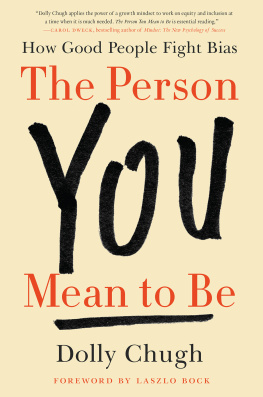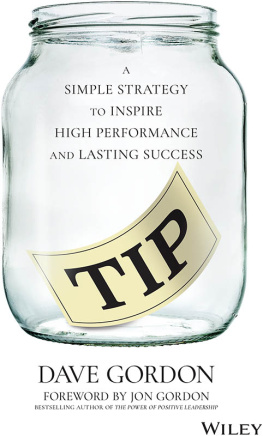CONTENTS

Also by John Whitfield
In the Beat of a Heart: Life, Energy, and the Unity of Nature
Copyright 2012 by John Whitfield. All rights reserved
Published by John Wiley & Sons, Inc., Hoboken, New Jersey
Published simultaneously in Canada
No part of this publication may be reproduced, stored in a retrieval system, or transmitted in any form or by any means, electronic, mechanical, photocopying, recording, scanning, or otherwise, except as permitted under Section 107 or 108 of the 1976 United States Copyright Act, without either the prior written permission of the Publisher, or authorization through payment of the appropriate per-copy fee to the Copyright Clearance Center, 222 Rosewood Drive, Danvers, MA 01923, (978) 7508400, fax (978) 6468600, or on the web at www.copyright.com . Requests to the Publisher for permission should be addressed to the Permissions Department, John Wiley & Sons, Inc., 111 River Street, Hoboken, NJ 07030, (201) 7486011, fax (201) 7486008, or online at http://www.wiley.com/go/permissions .
Limit of Liability/Disclaimer of Warranty: While the publisher and the author have used their best efforts in preparing this book, they make no representations or warranties with respect to the accuracy or completeness of the contents of this book and specifically disclaim any implied warranties of merchantability or fitness for a particular purpose. No warranty may be created or extended by sales representatives or written sales materials. The advice and strategies contained herein may not be suitable for your situation. You should consult with a professional where appropriate. Neither the publisher nor the author shall be liable for any loss of profit or any other commercial damages, including but not limited to special, incidental, consequential, or other damages.
For general information about our other products and services, please contact our Customer Care Department within the United States at (800) 7622974, outside the United States at (317) 5723993 or fax (317) 5724002.
Wiley also publishes its books in a variety of electronic formats and by print-on-demand. Some content that appears in standard print versions of this book may not be available in other formats. For more information about Wiley products, visit us at www.wiley.com .
ISBN 978-0-470-91235-5 (cloth); ISBN 978-1-118-11464-3 (ebk);
ISBN 978-1-118-11465-0 (ebk); ISBN 978-1-118-11466-7 (ebk)
For Tom
Introduction
Cassio: Reputation, reputation, reputation! O! I have lost my reputation. I have lost the immortal part of myself, and what remains is bestial.
Iago: As I am an honest man, I thought you had received some bodily wound; there is more sense in that than in reputation. Reputation is an idle and most false imposition: oft got without merit, and lost without deserving: you have lost no reputation at all, unless you repute yourself such a loser.
William Shakespeare, Othello , act II, scene III
As 1996 began, an increasing amount of Pierre Omidyars time was taken up with a site called AuctionWeb, which he had launched a few months earlier as a hobby. One chore of Omidyars was fielding about a dozen e-mails a day from buyers or sellers who were in dispute. AuctionWeb made no attempt to control its users, charged no fees, and gave no guarantees; it was simply a digital market, a place for buyers and sellers to meet. When complaints came in, Omidyar, who had a day job as a computer programmer, would forward the message to the other person involved and ask the parties to resolve the matter between themselves. This usually worked, but Omidyar would have preferred not to get involved at all.
AuctionWeb was possibly the least reassuring trading environment ever devised. Buyers were invited to bid on products they hadnt seen and then send money to people they didnt know, who were identified by usernames and virtual storefronts that had cost them nothing to set up and would cost them nothing to replace under different names. In such a situation, the obvious risk was that without someone in charge who had the power to punish bad behavior, AuctionWeb would become what economists call a market for lemons. Buyers, worried that their purchases would arrive in worse condition than advertised or not arrive at all, would bid low. High-quality sellers would take their goods elsewhere, and a race to the bottom would start, resulting in a yard sale where junk was sold for pennies.
Omidyar, and those who were using his site, had run up against the question of how to work out whom you can trust. AuctionWeb, because it seemed to demand blind faith from its users, highlighted the matter, but its a question that we all face every day, just about every time we meet another human being, online or in the flesh, in business, romance, friendship, politics, or simply while listening to the morning weather report. When we decide to trust, we invest some combination of time, energy, and resources in other people, in the belief that they will keep their side of the bargain. The other guys do the same.
Omidyar could tell that blind faith was not getting the job done. He needed a machine for manufacturing trust that AuctionWebs users could fuel and operate. The solution he came up with was to allow users to rate one another, awarding +1 as a reward, 1 as a punishment, and 0 as the neutral option. If users wanted, they could also leave a short written comment. What everyone said about everyone else would be on public display. By creating a record of past behavior, this feedback aimed to give honest sellers of high-quality merchandise an escape route from the market for lemons and give buyers a way to find these sellers.
In February 1996 Omidyar unveiled this system and posted a letter on the site:
Most people are honest. And they mean well. Some people go out of their way to make things right. Ive heard great stories about the honesty of people here. But some people are dishonest. Or deceptive. This is true here, in the newsgroups, in the classifieds, and right next door. Its a fact of life. But here, those people cant hide. Well drive them away. Protect others from them. This grand hope depends on your active participation. Become a registered user. Use our feedback forum. Give praise where it is due; make complaints where appropriate.
That month, Omidyar also began to charge sellers a percentage of the sale price to post listings on AuctionWeb, because the site was getting so much traffic that his Internet service provider had upped its fees. Fast-forward fourteen years, and in the first quarter of 2011 eBay, as AuctionWeb is now known, announced revenues of $2.5 billion.
EBay feedback is whats known as an online reputation system. If you like to measure a things significance in dollars, Omidyars feat of alchemy proves the power of reputation. He used other peoples willingness to gossip about one another and to act on that gossip to turn his hobby into a multibillion-dollar business.
As a summary of human nature, Omidyars manifesto is hard to beat. But its common-sense assertions open out into a hall of wonders and mysteries. Most people really are honest and well-meaningmost of us, most of the time, can be trusted. Why, given the advantages of being otherwise, is that? Why, on the other hand, are some people dishonest and deceptive? And why could Omidyar count on his users to unmask and exclude such people? After all, even if I get a good deal, I may never buy anything from that seller againso why bother to praise him? And if I get ripped off, I know not to deal with that person againso why take the time to warn others about him?
This book is about the ways we work out how to trust people and how we persuade them to put their trust in us. As eBay users were among the first to discover, the digitized, often faceless, world in which we spend an increasing amount of our time and money has thrust these problems on us in new forms. Had our species not been able to answer them in the past, however, there would be no eBay on which to be defrauded or Internet, computers, books, shops, cities, civilization, or society. Our willingness to trust strangers and to be trustworthy is one of the most amazing and powerful things in the history of life and one of the hardest to explain.
Next page
